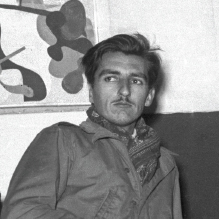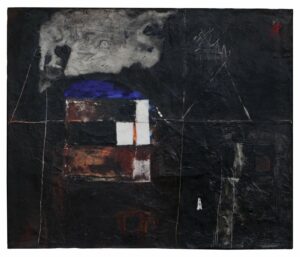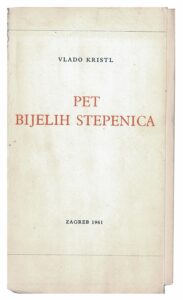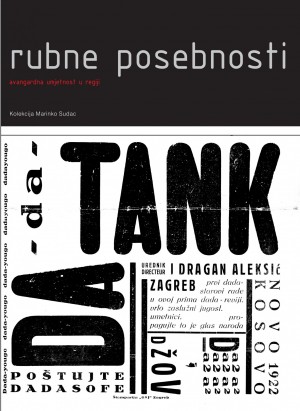VLADO KRISTL
1923., Zagreb – 2004., München
RADOVI
Biografija

Ex Jugoslavija
1946-1968
Vladimir (Vlado) Kristl bio je hrvatski filmski redatelj, scenarist, slikar i animator.
Cjelokupni njegov slikarski, pjesnički i filmski rad u istoj osobi, ostvaren u dva kulturna ambijenta – u Hrvatskoj od 1952. do 1962. i Njemačkoj od 1963. do kraja života – može se pratiti samo u zasebnim područjima njegova cjelovitog opusa. Kristl je sudjelovao na povijesnoj izložbi četvorice članova grupe EXAT 51 u Zagrebu i Beogradu početkom 1953. No, nema ga među potpisnicima Manifesta grupe, objavljenog krajem 1951.
Sve Kristlove slike s početka pedesetih nose naslov Kompozicije, čime ih želi odvojiti od bilo kakvog pozivanja na izvorne prirodne i predmetne podatke. Bili su toliko oskudni izgledom i izvedbom da mu je čak i jedini tadašnji kritičar, Mića Bašičević, zamjerao “manjak metrike”.
Sudjelovanjem u EXAT-u 51 Kristl je dvostruka iznimka u ovoj skupini, što kao da potvrđuje neka pravila: on se već buni protiv svake vladajuće klime u umjetnosti svoje sredine, a utočište nalazi u uskom krugu istomišljenika. No, u tom se krugu ne osjeća sasvim ugodno. Jer, Kristl je, kao vrlo apstraktan slikar, svojevrsni otpadnik od ideje koja se sastoji od zagovaranja sinteze arhitekture, primijenjene i čiste likovne umjetnosti, što grupa EXAT 51 zastupa i priželjkuje kao svoj “maksimalni program”.
Projekti u kojima su izlagani radovi
umjetnički utjecaji
VLADO KRISTL utjecao je na:
Ex Jugoslavija
1946-1968
Ex Jugoslavija
1946-1968
Ex Jugoslavija
1946-1968
Ex Jugoslavija
1968-1989
Ex Jugoslavija
1946-1968
Ex Jugoslavija
1946-1968
Ex Jugoslavija
1968-1989
Na VLADO KRISTL utjecali su:
Ex Jugoslavija
1946-1968
Ex Jugoslavija
1946-1968
Ex Jugoslavija
1946-1968
ESEJ O AUTORU
- Ješa Denegri, Njemačko razdoblje slikarstva Vlade Kristla [CROATIAN]
- Ješa Denegri, Novi prilog dopunama “Teme Kristl” [CROATIAN]
- Ješa Denegri, Opus totalnog autora In memoriam Vlado Kristl (1923. — 2004.) [CROATIAN]
- Ješa Denegri, Slikarstvo Vlade Kristla u vrijeme boravka u Zagrebu do 1962. godine [CROATIAN]
- Ješa Denegri, Vlado Kristl: dvije posthumne izložbe [CROATIAN]


